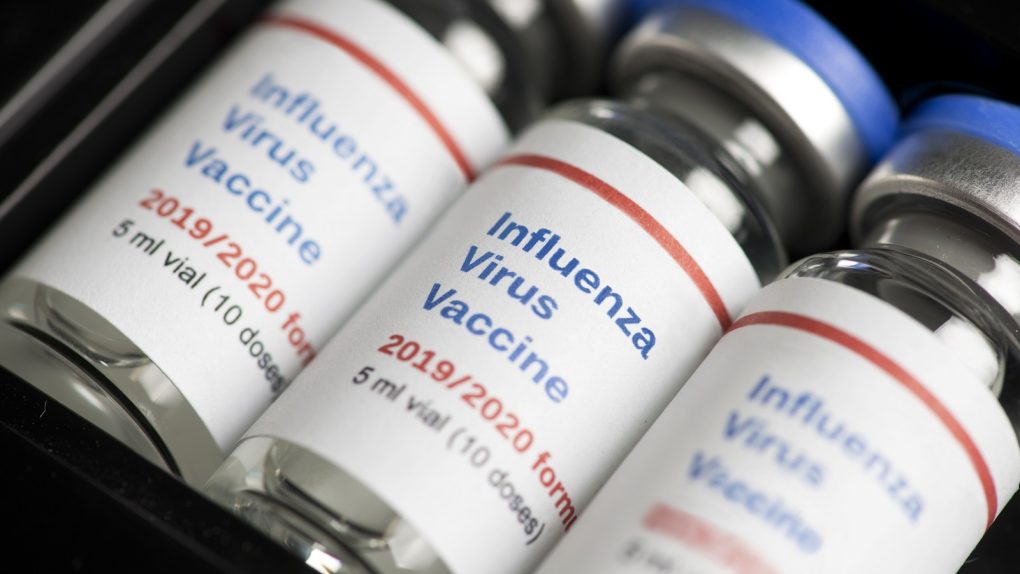- The upcoming flu season might be challenging for some communities that are still battling significant COVID-19 outbreaks, health officials have warned.
- Observing safety measures that can prevent the spread of COVID-19 and getting a flu vaccine this fall could reduce a person’s risk of getting both infectious diseases in the coming months.
- Additionally, a new study says the flu vaccine may actually help reduce the severity of COVID-19 in patients, although the flu vaccine will not effectively block a coronavirus infection.
- There are other benefits from getting a flu shot that could help you better manage life during the coronavirus pandemic, and possibly reduce the spread of COVID-19.
It’s already happening: COVID-19 survivors are getting infected with the novel coronavirus a second time. Cases from Hong Kong, Belgium, and the Netherlands showed that reinfection is possible, suggesting that the acquired immunity from surviving the virus can be very limited. The Hong Kong case gives us hope that a second COVID-19 infection could be a lot milder, but there’s hardly enough data. One patient isn’t enough to confirm such a hypothesis.
The timing of reinfection couldn’t have been any worse. The flu season is coming soon, which means people will risk getting infected with one of both viruses during the winter, and that includes scenarios where you can get both the flu and COVID-19 at the same time. By itself, the flu isn’t as scary as COVID-19 because we have effective therapies and vaccines to fight it. Add a virus to the mix that has no cure at this time, and things get complicated. That’s because both the flu and the coronavirus can cause the same symptoms, making it difficult for people to know which pathogen they’re dealing it. Dual outbreaks could further strain hospital resources as well, as patients exhibiting symptoms will have to be tested for both illnesses and then treated accordingly.
That’s where a flu vaccine might help, because it would give people protection against one of the two viral threats this fall and winter. And now, it’s starting to look like a flu shot might have additional beneficial side-effects during the COVID-19 pandemic.
The flu vaccine is hardly as effective as doctors want it to be. Per CDC guidelines, the vaccine can reduce the risk of getting infected by 40% to 60%. But can the flu vaccine help protect against COVID-19 as well? Some people think that added benefit might be possible, but there’s not enough research on the matter. PopSugar details an early July study from Brazil that was published in pre-review form on medRxiv.
The researchers studied records for 100,000 patients in the country and found that people who got a flu shot were 8% less likely to need intensive care, 8% less likely to need respiratory support, and 17% less likely to die of COVID-19 complications. Those are promising numbers, but they’re not good enough to rely on a flu shot for diminishing the risks from COVID-19. Family medicine physician David Cutler told PopSugar that “the flu vaccine does not prevent COVID-19,” but revealed other benefits that come from flu immunizations.
After a flu shot, “you will be less likely to get flu symptoms like fever, cough, and body aches,” the doctor said. “These symptoms could be suspicious for COVID-19 and keep you out of work or isolated at home even if testing is negative because of the risk of a ‘false negative’ test.”
Another benefit concerns the risk of getting both infections at the same time. “You reduce the risk of getting simultaneous flu and COVID-19 infections, which could be significantly worse than either alone,” Cutler advised.
There’s one other unexpected benefit in the event of a dual infection. “If you had asymptomatic or minimally symptomatic COVID-19 — which is what most people get — you would be less likely to spread it when coughing from the flu,” Cutler said. The doctor also noted that the best way to prevent the flu and COVID-19 is to social distance and wear a face mask. That’s regardless of whether you get a flu shot, or whether the flu shot is effective.
The CDC has previously warned that not getting a handle on COVID-19 this summer could lead to nightmare scenarios where some communities will battle a flu epidemic at the same time as the COViD-19 pandemic. The agency advised people to get vaccinated against the flu to reduce the risk of transmission. Dr. Anthony Fauci has also echoed these concerns in the past about a potential convergence o COVID-19 and the flu in the fall and winter.








